FOUNDING
BOARD OF DIRECTORS (Detailed),
THE HAAN FOUNDATION FOR CHILDREN
G.
Reid Lyon, Ph.D., nationally renowned research psychologist
Dr. Lyon is a research psychologist and heads the most respected
organization that directs and funds research related to child development.
He is responsible for the direction, development and management
of research programs in developmental psychology, cognitive neuroscience,
behavioral pediatrics, reading, and human learning and learning
disorders. Before assuming this important position on a full-time
basis in l991, Dr. Lyon served on the faculties of Northwestern
University (Communication Science and Disorders/Neuroscience-1980-1983)
and the University of Vermont Neurology-1983-1991). He was a member
of the Maternal and Child Health Scientific Peer Review Group at
NIH from 1987 to 1991. Dr. Lyon's research program was supported,
in part, by grants from the NIH and the Department of Education.
John
Sidgmore, Vice Chairman, Worldcom Inc., McLean, Virginia; Chairman,
Uunet, Inc., McLean, Virginia
John Sidgmore, Worldcom's vice chairman and UUNet's Chair, has an
extensive career in the information technology field. Before his
current role, he was COO of UUNET, president and COO of MFS, president
and CEO of CSC Intellicom and VP and general manager of General
Electric Information Services North American division. He is on
the board of MCI WorldCom, UUNET, MFS Communications Saville Systems
and ECI.
SCIENTIFIC
ADVISORY BOARD (Detailed)
Chairman,
Scientific Advisory Board Of Directors For The Haan Foundation For
Children- Dr. Maryanne Wolf
 Maryanne
Wolf, Ed.D, Director, Center for Reading and Language Research;
Associate Professor of Child Development, Eliot-Pearson Department
of Child Development, Tufts University; Research Scientist, Harvard
Medical School; Department of Psychiatry, McLean Hospital, Boston,
Massachusetts Maryanne
Wolf, Ed.D, Director, Center for Reading and Language Research;
Associate Professor of Child Development, Eliot-Pearson Department
of Child Development, Tufts University; Research Scientist, Harvard
Medical School; Department of Psychiatry, McLean Hospital, Boston,
Massachusetts
Dr. Wolf received
her doctorate from the Department of Human Development in the Graduate
School of Education at Harvard University, where she began her work
on the neurological underpinnings of reading, language and dyslexia.
She was a Fulbright Fellow in Germany where she conducted dyslexia
research with German-speaking children.
Her current
research with Dr. Pat Bowers concerns a new conceptualization of
developmental dyslexia called the Double-Deficit Hypothesis. This
work was the subject of a recent Special Issue of the Journal of
Learning Disabilities. In collaboration with colleagues Dr. Robin
Morris, and Dr. Maureen Lovett, Professor Wolf has been awarded
a NICHD Shannon Award for Innovative Research and several multi-year
NICHD grants to investigate new approaches to reading intervention.
She received the Norman Geschwind Lecturer Award from the International
Dyslexia Association for Neuroscience Research in Dyslexia, and
was awarded the Distinguished Professor of the Year Award from the
Massachusetts Psychological Association, and the Teaching Excellence
Award from the American Psychological Association. She has edited
a new book, Dyslexia, Fluency, and the Brain, and is the author
of the forthcoming book, Plato's Rebellion: The Story and Science
and Written Language and its Disorders, published by Harper-Collins.
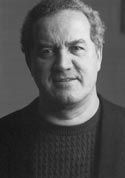 Ed
Kame'enui, Ph.D., Director of the Institute for the Development
of Educational Achievement (IDEA), College of Education, University
of Oregon; Associate Director, National Center to Improve the Tools
of Educators (NCITE), Eugene, Oregon Ed
Kame'enui, Ph.D., Director of the Institute for the Development
of Educational Achievement (IDEA), College of Education, University
of Oregon; Associate Director, National Center to Improve the Tools
of Educators (NCITE), Eugene, Oregon
Dr. Kame'enui
co-directs six federal US Department of Education research and training
grants. He has published more than 80 research and issue journal
articles and is author or co-author of seven textbooks and over
25 book chapters. He serves on numerous editorial boards of prominent
reading and special education journals. He serves on the Committee
on the Prevention of Reading Difficulties in Young Children for
the National Research Council and is a member of the Research Advisory
Team for the American Initiative on Reading and Writing sponsored
by the US Department of Education.
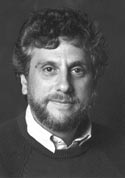 Gil
G. Noam, Ph.D., Director of the Hall-Mercer Laboratory of Developmental
Psychology and Developmental Psychopathology at Harvard Medical
School and McLean Hospital; Director of the Risk and Prevention
Program, Harvard Graduate School of Education; Director of the Program
in Afterschool Education and Research, Harvard Graduate School of
Education; Dipl. Psychology from Freie University in Berlin, and
Ph.D. from the University of Fribourg in Switzerland Gil
G. Noam, Ph.D., Director of the Hall-Mercer Laboratory of Developmental
Psychology and Developmental Psychopathology at Harvard Medical
School and McLean Hospital; Director of the Risk and Prevention
Program, Harvard Graduate School of Education; Director of the Program
in Afterschool Education and Research, Harvard Graduate School of
Education; Dipl. Psychology from Freie University in Berlin, and
Ph.D. from the University of Fribourg in Switzerland
Dr. Noam trained
as a clinical and developmental psychologist in both Europe and
the United States. Dr. Noam has a strong interest in theory, research
and practice in human development and resilience. He has undertaken
a number of cross-sectional longitudinal studies of children and
adolescents. He and his associates have created innovative prevention
programs in middle schools for at-risk children and youths.
Dr. Noam's books include Development Approaches to the Self; The
Moral Self; Children, Youth and Suicide; and Development and Vulnerabilities
in Close Relationships. Dr. Noam has published and lectured internationally
and nationally. He spent the past year at the Center for Advanced
Study in Behavioral Sciences at Stanford University, and is currently
completing work on a book on the development of resilience and interventions
with youth.
SCIENTIFIC
DEVELOPMENT TEAM (Detailed)
Chairman
Of The Scientific Development Board Of Directors For The Haan Foundation
For Children-Dr. Joseph Torgesen
 Joseph
K. Torgesen, Ph.D. and Distinguished Research Professor of Psychology
and Education, Florida State University, Tallahassee, Florida Joseph
K. Torgesen, Ph.D. and Distinguished Research Professor of Psychology
and Education, Florida State University, Tallahassee, Florida
Based on the
development and acceptance of his "metrics for success,"
Dr. Torgesen will lead the development team.
Dr. Torgesen
is currently a member of the Learning Disabilities Planning Group,
Office of Special Education Programs, the US Department of Education,
the Scientific Advisory Board, the International Dyslexia Association
and the Editorial Review Board, Center for the Improvement of Early
Reading Achievement (CIERA). He is a member of the Editorial Boards
of the Journal of Learning Disabilities, Learning Disabilities Quarterly
and Learning Disabilities Research and Practice.
Dr. Torgesen
is also a member of the International Academy for Research in Learning
Disabilities, the American Educational Research Association, the
Learning Disabilities Association of America, the Council for Learning
Disabilities and the Society for the Scientific Study of Reading.
Dr. Torgesen
has received numerous awards and honors, most recently the Distinguished
Lecturer Award, Council for Learning Disabilities 1997, The Sylvia
O. Richardson Award for Outstanding and Exemplary Service to Individuals
with Learning Disabilities and Dyslexia, 1998, from the Florida
Branch of the International Dyslexia Association, and The Samuel
A. Kirk Award for Exemplary Research Publication from the Division
of Learning Disabilities of the Council for Exceptional Children,
2000.
Dr. Torgesen
has made over 250 presentations at professional meetings, colloquia
and workshops, and has presented over 200 published works. Dr. Torgesen
received his Ph.D. with a double major in Development and Clinical
Psychology from the University of Michigan.
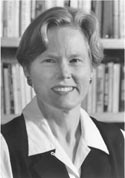 Barbara
R. Foorman, Ph.D., Director, Center for Academic and Reading
Skills, University of Texas, Houston, Texas; Health Sciences Center,
Principal Investigator, National Institute of Child Health &
Human Development (NICHD) Early Intervention Project Barbara
R. Foorman, Ph.D., Director, Center for Academic and Reading
Skills, University of Texas, Houston, Texas; Health Sciences Center,
Principal Investigator, National Institute of Child Health &
Human Development (NICHD) Early Intervention Project
Dr. Foorman
is an internationally recognized scholar in the areas of reading
and language development. In the early part of her career, she conducted
cross-linguistic research in Japan, Mexico and England. For the
past 15 years, she has focused on reading acquisition, bringing
her cross-linguistic perspective to studying the role of phonological
and orthographic processing in learning to read. In the past 10
years, Professor Foorman has focused her research on the role of
instruction in learning to read. She is currently Principal Investigator
of an $11.8-million, five-year grant funded by the National Institute
of Child Health and Human Development. She is co-Principal Investigator
on projects within the NICHD-funded "Psycholinguistic and Biological
Mechanisms of Dyslexia" and the Center for the Study of Learning
and Attention Disorders, both at Yale University. Both of these
projects use measures developed by Dr. Foorman and implemented in
studies of specific-language-impaired and severely dyslexic children.
Dr. Foorman received her M.A.T. from the Harvard Graduate School
of Education and her Ph.D. from the University of California, Berkeley's
School of Education. She is the author or co-author of 50 journal
articles and book chapters. Her article in the March 1998 issue
of the Journal of Educational Psychology has already had enormous
impact on reading research and traditional educational practices.
She recently participated in President Bush's Reading Roundtable
with literary experts, in January 2001.
 Richard
Olson, Ph.D., Professor of Psychology, University of Colorado,
Boulder, Colorado Richard
Olson, Ph.D., Professor of Psychology, University of Colorado,
Boulder, Colorado
Dr. Olson and
his colleagues have recently received a $2.4 million grant from
the National Institutes of Health to study early reading development
in identical and fraternal twins. The researchers will study 600
pairs of twins to understand the factors influencing individual
differences in early reading, language and attention. The project
will help learn more about what can be done to help preschool children
who are at risk for reading difficulties. Dr. Olson believes that
learning more about the developmental precursors that place young
children at risk for failing in the early grades will help with
the prediction and amelioration of early developmental problems
before children begin formal schooling.
 Maureen
W. Lovett, Ph.D., Senior Scientist, Brain and Behavior Research,
Hospital for Sick Children, Toronto, Canada Maureen
W. Lovett, Ph.D., Senior Scientist, Brain and Behavior Research,
Hospital for Sick Children, Toronto, Canada
Dr. Lovett focuses
in the areas of developmental dyslexia, cognitive rehabilitation
and developmental neuropsychology. Her clinical research program
is devoted to the study of specific cognitive and language learning
disorders of childhood and adolescence. Her ongoing projects involve
treatment of outcome studies and evaluation of the efficacy of different
forms of cognitive and language rehabilitation for children and
adolescents with developmental learning disorders.
 Jack
Fletcher, Ph.D., Professor, Department of Pediatrics and Center
for Academic and Reading Skills, University of Texas, Houston, Texas Jack
Fletcher, Ph.D., Professor, Department of Pediatrics and Center
for Academic and Reading Skills, University of Texas, Houston, Texas
Throughout the
past 20 years, Dr. Fletcher has completed research on many aspects
of reading and attention problems in children, including definition
and classification, neurobiological correlates and, most recently,
intervention. He collaborates on four grants on reading and attention
funded by the National Institute of Child Health and Human Development,
including a five-year, $11.8 million award to evaluate reading interventions
for children at risk for reading disability.
Dr. Fletcher
has been honored by the President of the United States with a request
to become a member of the President's Council of Excellence in Special
Education, 2002.
Dr. Fletcher
has authored over 120 research articles on journals and over 60
chapters in books, mostly on children with disabilities. Dr. Fletcher
is an associate editor of the Journal of Clinical and Experimental
Neuropsychology and serves on eight other editorial boards. He is
a Diplomat, of the American Board of Professional Psychology. He
received his doctoral degree in Clinical Psychology from the University
of Florida.
 Sally
Shaywitz, M.D., Professor Pediatrics, Yale University, New Haven,
Connecticut, Co-Director, Yale Center for the Study of Learning
and Attention, New Haven, Connecticut Sally
Shaywitz, M.D., Professor Pediatrics, Yale University, New Haven,
Connecticut, Co-Director, Yale Center for the Study of Learning
and Attention, New Haven, Connecticut
Dr. Shaywitz
is a doctor of pediatrics and a neurologist who is nationally and
internationally recognized for research contributions in reading
development and reading disorders, including recent demonstration
of the neurological substrate of reading and reading disability.
She is unique for contribution her to the development of a conceptual
model of reading and reading disability and for identifying high
prevalence of reading disability in girls.
A recent Distinguished
Alumnus Award was given to Dr. Shaywitz from Albert Einstein School
of Medicine. Most recently, Dr. Shaywitz served on the National
Academy of Science Panel Preventing Reading Disabilities in Children.
Dr. Shaywitz
is a Diplomat of the American Board of Pediatrics; a member of the
Institute of Medicine of the National Academy of Sciences, the American
Academy of Pediatrics, the American Association for the Advancement
of Science, the American Educational Association Council for Exceptional
Children, the International Dyslexia Association Society for Developmental
and Behavioral Pediatrics, the Society for Pediatric Research, the
Society for Research in Child Development and the Society for the
Scientific Study of Reading. She is a panel member of the National
Reading Panel (NRP).
 Frank
Manis, Ph.D., Department of Psychology, University of Southern
California, Los Angeles Frank
Manis, Ph.D., Department of Psychology, University of Southern
California, Los Angeles
Dr. Manis specializes
in reading and cognitive development, dyslexia and learning disabilities.
He has received numerous grants and awards in support of his research,
including a New Investigator Research Award from the National Institute
of Mental Health and a research grant from the National Institutes
of Health.
Dr. Manis has
published widely on reading acquisition and on developmental dyslexia.
He is currently a member of the American Psychological Society,
the Society for Research in Child Development and the Orton Dyslexia
Society. Dr. Manis serves on the editorial board for Scientific
Studies of Reading, a new journal.
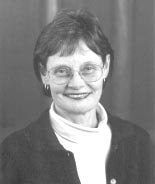 Rebecca
Felton, Ph.D., Educational Consultant, Southport, North Carolina Rebecca
Felton, Ph.D., Educational Consultant, Southport, North Carolina
Dr. Felton has
published in the areas of physiological specifications of the phenotype
in genetic language disorders, separate verbal memory and naming
deficits in attention deficit disorder and reading disability, the
dissociation of attention deficit disorder from reading disability,
cognitive deficits in reading disability and attention deficit disorder,
neuropsychological profile of adult dyslexics, a reading-level match
study of nonword reading skills in poor readers and separate linguistic
and attentional factors in the development of reading.
fMRI SCIENTIFIC
ADVISORY BOARD (Detailed)
Chairman,
fMRI Scientific Advisory Board Of Directors For The Haan Foundation
For Children-John D. E. Gabrieli, Ph.D.
 John
D. E. Gabrieli, Ph.D., Director, Gabrieli Laboratory, Associate
Professor, Psychology Neurosciences, Radiology, Stanford University,
Palo Alto, California John
D. E. Gabrieli, Ph.D., Director, Gabrieli Laboratory, Associate
Professor, Psychology Neurosciences, Radiology, Stanford University,
Palo Alto, California
Dr. Gabrieli
is an Associate Professor in Psychology, in the Neurosciences Program
and in Radiology at Stanford University. He received a B.A. in English
from Yale University and a Ph.D. in Behavioral Neuroscience from
the Department of Brain and Cognitive Sciences at MIT, and was a
postdoctoral fellow in the Psychology Department at Harvard and
Northwestern.
Dr. Gabrieli
and his team have received 35 grants in the areas of cognitive dysfunction
covering memory, learning disabilities in children and disorders
of development, including dyslexia, ADD/ADHD and Alzheimer's. His
area of research is human cognitive neuroscience, in which he studies
the brain basis of memory, language and thought. He has published
over 100 publications, 150 abstracts and 200 journals regarding
cognitive and affective development.
 Susan
Y. Bookheimer, Ph.D., Associate Professor, Department of Psychiatry
and Biobehavioral Sciences at the UCLA School of Medicine, Ahmanson-Lovelace
Brain Mapping Center. Susan
Y. Bookheimer, Ph.D., Associate Professor, Department of Psychiatry
and Biobehavioral Sciences at the UCLA School of Medicine, Ahmanson-Lovelace
Brain Mapping Center.
Dr. Bookheimer
received a B.A. degree from Cornell University and an M.A. and Ph.D.
in Clinical Psychology (Neuropsychology) from Wayne State University. Her
almost two decades of work experience includes positions at the
National Institute of Neurological Disorders and Stroke, National
Institutes of Health, the Neuropsychology Section of the Department
of Psychology at Gaylord Hospital and the Neurosurgery Section at
Yale University School of Medicine. Dr. Bookheimer currently
serves on the Scientific Review Committee for the Organization for
Human Brain Mapping. At UCLA, she has served as Chair, Admission
Committee: Interdepartmental Program in Neurosciences, as a member
of the Research Council, Neuropsychiatric Institute and as a member
of the Academic Advisory Committee, Interdepartmental Program in
Neurosciences.
Dr. Bookheimer
and her team have been the recipients of 20 grants in areas of neuropsychology
research relating to changes in brain function, brain mapping, alzeihmer’s
disease, impaired reading and dyslexia, among others. She has
published more than 100 abstracts and more than 50 articles regarding
clinical and experimental neuropsychology, functional MRIs, human
brain mapping, memory and brain stimulation.
 Andrew
C. Papanicolaou, Ph.D., Professor and Director, Division of
Clinical Neurosciences, Department of Neurosurgery, University of
Texas-Houston, Health Science Center. Andrew
C. Papanicolaou, Ph.D., Professor and Director, Division of
Clinical Neurosciences, Department of Neurosurgery, University of
Texas-Houston, Health Science Center.
Dr. Papanicolaou
is Professor and Director, Division of Clinical Neurosciences, Department
of Neurosurgery, University of Texas-Houston, Health Science Center. He
also serves as an Adjunct Professor in the Department of Psychology
at the University of Houston, as Director of the Magnetic Souce
Imaging Unit at Memorial Hermann Hospital and as Director of The
Vivian Smith Advanced Studies at the Institute of the International
Neuropsychology Society.
Dr. Papanicolaou
received a B.S. and a Master’s in Psychology from Xavier University. He
received a Ph.D. from Southern Illinois University at Carbondale. Dr.
Papanicolaou has more than 20 years experience as a professor specializing
in Neurosurgery. He received the Deans Excellence Award at
the University of Texas-Houston Medical School in 1999. Dr.
Papanicolaou is a member of the American Association for the Advancement
of Science, the American Society of Neurophysiological Monitoring,
the Hellenic Psychological Association and the International Neuropsychological
Society.
Dr. Papnicolaou
has received numerous research grants and has served as the principal
investigator in areas of neuropsychology including brain mapping,
reorganization of brain function, sensory physiology and cognition
and memory processing. He has published or contributed to more
than 20 books and has published approximately 120 peer journal articles.
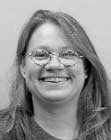 Dr.
Elise Temple, Ph.D., Graduate Field Faculty, Department of Psychology,
Cornell University. Dr.
Elise Temple, Ph.D., Graduate Field Faculty, Department of Psychology,
Cornell University.
Dr. Temple is
a member of the Graduate Field Faculty for the Department of Psychology
and an Assistant Professor and member of the Graduate Field Faculty
for the Department of Human Development at Cornell University. In
addition, she serves as a Faculty Fellow at the Sackler Institute
for Developmental Psychobiology at Weill Medical College of Cornell
University.
Dr. Temple received
a B.S., summa cum laude, from the University of Oregon, majoring
in Psychology and Biology and minoring in Chemistry. She was
a Howard Hughes Medical Institute Pre-Doctoral Fellow and received
her Ph.D. in Neurosciences from Stanford University School of Medicine. Dr.
Temple is a member of the Undergraduate Education Committee, Human
Development at Cornell and has served on the Review Panel for the
National Science Foundation for the IGERT Panel and Cognitive Neuroscience
Panel. She has also worked as an Ad-hoc Reviewer for Cerebral
Cortex, Child Neuropsychology and the Journal of Cognitive Neuroscience
and as an Ad-hoc neuroanatomy textbook reviewer for Fitzgeral Science
Press, Inc. and Garland Publishing. Dr. Temple is a member
of the American Association for the Advancement of Science, the
Cognitive Neuroscience Society and the Society for Neuroscience.
Dr. Temple has
given numerous presentations on modern neuroimaging, neural plasticity
in dyslexic children, developmental psychology, functional imaging
of reading disorders and language and rapid auditory processing
and their relationship with functional MRI, among others. She
has published a number of journal articles and conference abstracts
in the areas of neurobiology and neuroscience.
 Dr.
Anthony D. Wagner, Ph.D., Assistant Professor of Cognitive Neuroscience,
Department of Brain and Cognitive Sciences, Massachusetts Institute
of Technology. Dr.
Anthony D. Wagner, Ph.D., Assistant Professor of Cognitive Neuroscience,
Department of Brain and Cognitive Sciences, Massachusetts Institute
of Technology.
In addition
to Dr. Wagner’s position as Assistant Professor of Cognitivie
Neuroscience, Department of Brain and Cognitive Sciences at the
Massachusetts Institute of Technology (MIT), he also serves as a
Faculty Affiliate for the Center for Learning and Memory at MIT
and is a visiting scientist at Massachusetts General Hospital for
the Nuclear Magnetic Resonance Center. Previously he was an
Assistant Cognitive Psychologist and Instructor for the Department
of Radiology at Massachusetts General Hospital for the Nuclear Magnetic
Resonance Center. Dr. Wagner received a B.A. in Pyschology,
Magna Cum Laude, Departmental Highest Honors from the University
of California, Los Angeles. He received his Ph.D. at Stanford
University. Dr. Wagner was a Post-doctoral Research Fellow
for the Department of Psychology at Harvard University and was also
a Post-doctoral Research Fellow for the Department of Radiology
at Massachusetts General Hospital.
Dr. Wagner was
the recipient of the McKnight Scholar Award in 2001, the Surdna
Foundation Research Award in 2000 and the Ellison Medical Foundation
New Scholars Award in2000. He has also held the Paul E. Newton
Career Development Professorship in Neuroscience and was awarded
the Jacob K. Javits Graduate Fellowship. Dr. Wagner is a member
of the American Association for the Advancement of Science, the
American Psychological Association, the Cognitive Neuroscience Society,
the Memory Disorders Research Society, the Organization for Human
Brain Mapping and the Society for Neuroscience.
Dr. Wagner has
extensive teaching experience in the area of cognitive sciences. He
and his team currently have six active grants for research in neuroscience
regarding subjects which include, functional neurobiology of memory,
brain injury memory disorders, mechanisms of memory formation, memory
contributions to phonological representation and memory encoding
and multimodal neuroimaging of cognitive and mnemonic control. Dr.
Wagner has published nearly 40 articles and has additional manuscripts
currently in preparation, has delivered over 20 presentations and
symposiums and has published more than 100 abstracts.
 Russell
Alan Poldrack, Ph. D., Assistant Professor of Psychology, Department
of Psychology, University of California at Los Angeles Russell
Alan Poldrack, Ph. D., Assistant Professor of Psychology, Department
of Psychology, University of California at Los Angeles
Dr. Poldrack
is currently Assistant Professor of Psychology at the University
of California at Los Angeles as well as Assistant Professor of Radiology
at Harvard Medical School and Assistant Psychologist at the MGH-NMR
Center at Massachusetts General Hospital. In addition Dr. Poldrak
is a member of the faculty of the Harvard Graduate School of Education. He
was also a Postdoctoral Fellow at the Stanford University Department
of Psychology and a Lecturer at the Stanford University Department
of Psychology.
Dr. Poldrack
received his B.A. in psychology from Baylor University in Waco,
TX and his Masters and Ph.D. in cognitive psychology from the University
of Illinois. He is a member of the American Psychological Society,
the American Psychological Association, Psychonomic Society (Associate),
Cognitive Neuroscience Society, the Memory Disorders Research Society
and the Society for Neuroscience. He has served as an Ad-hoc
Reviewer for a multitude of journals including Brain, Journal of
Cognitive Neuroscience, Behavioral Neuroscience, Cognitive, Affective
& Behavioral Neuroscience, Journal of Experimental Psychology:
Learning, Memory, & Cognition, Journal of Memory and Language,
Cerebral Cortex, Human Brain Mapping, Cognitive Brain Research,
American Journal of Psychology, Cognitive Science, Journal of Neuroscience
Methods and Microscopy Research and Technique.
The areas of
research in which Dr. Poldrack specializes are the cognitive neuroscience
of learning, memory, and language, functional magnetic resonance
imaging of the brain, reading and dyslexia and neural systems for
skill learning and repetition priming.
Dr. Poldrack
was a Fellow at the National Institute of Mental Health where he
was the recipient of the National Research Service Award for his
research entitled “Relational Representation in Amnesia." Additionally,
he received an individual grant as a Fellow at the McConnell-Pew
Program for Cognitive Neuroscience for his research, "The Neural
Basis of Skill Learning using fMRI." Dr. Poldrack has
received another eight grants focused on research in neuroscience
and has published more than 100 abstracts, presentations and articles. He
has also been an invited speaker at various universities and research
centers including, Rice University, where he gave a presentation
regarding multiple memory systems and amnesia, the University of
California at Berkeley, where he presented on the neural basis of
skill learning, the Center for Psychological Studies in Berkeley,
where he presented on the neural basis of dyslexia, Harvard University,
where he was a guest lecturer, and MIT’s Department of Brain
and Cognitive Sciences, where Dr. Poldrack gave a presentation on
neural structure and function in dyslexia.
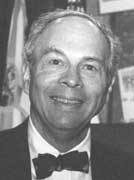 Bennett
Shaywitz, M.D., is Professor of Pediatrics and Chief of the
Section of Child Neurology at the Yale University School of
Medicine. He is also the co-director of the fMRI project. Bennett
Shaywitz, M.D., is Professor of Pediatrics and Chief of the
Section of Child Neurology at the Yale University School of
Medicine. He is also the co-director of the fMRI project.
Dr. Shaywitz
received his MD from Washington University School of Medicine and
completed his Pediatric training and then a Postdoctoral fellowship
in Child Neurology at the Albert Einstein College of Medicine before
joining the faculty of Yale. Together with his wife, Dr. Sally
Shaywitz, Dr. Bennett Shaywitz established and is currently Co-Director
of the Yale Center for the Study of Learning and Attention. Dr.
Shaywitz has a long-standing interest in disorders of learning and
attention in children and young adults. His research focuses
on using functional magnetic resonance imaging (fMRI) to discover
differences in brain organization and function in children and adults
with dyslexia and he is now using fMRI to study how the brain changes
as children with dyslexia are taught to read. Dr. Shaywitz
is the author of over 300 scientific articles and chapters examining
the neurobiology of reading and attention disorders.
Dr. Shaywitz’
honors include election to membership in the Institute of Medicine
of the National Academy of Sciences and selection, along with Dr.
Sally Shaywitz, as the recipient of the 2001 Leonard Apt Lectureship
of the American Academy of Pediatrics and the Sidney Berman Award
for the Study and Treatment of Learning Disabilities presented by
and American Academy of Child and Adolescent Psychiatry. He
currently serves on the Scientific Advisory Board of the March of
Dimes, on the Institute of Medicine Immunization Safety Review
Committee, on the NIH Biobehavioral and Behavioral Processes 6 [BBBP-6]
Study Section and on the Board of the HELP Group of the UCLA Department
of Psychiatry. Dr. Shaywitz also serves as associate editor of the
journal Child Development.
 Dr.
Guineviere Eden, Associate Professor of Neuroscience, Georgetown
University Dr.
Guineviere Eden, Associate Professor of Neuroscience, Georgetown
University
Dr. Eden is
currently Associate Professor of Neuroscience at Georgetown University
in Washington D.C. A graduate of Oxford University, Dr. Eden's
research is focused on the pathophysiology of developmental dyslexia
utilizing post-mortem studies and, more recently, in-vivo observations
by means of magnetic resonance imaging (MRI), functional MRI (fMRI)
and positron emission tomography (PET).
The studies
conducted in Dr. Eden's laboratory address cognitive and sensory
changes resulting from dyslexia, specifically focusing on phonological
and naming skills, as well as rapid visual and motor processing.
The effects of intensive remediation in individuals with developmental
dyslexia are being investigated by mapping brain activity prior
to and after reading intervention. The results from these studies
will elucidate to what extent early brain changes can be compensated
for and to what degree brain plasticity can prevail in bringing
about noticeable changes in the physiological and behavioral skills
associated with this developmental disorder.
EDUCATION
ADVISORY BOARD (Detailed)
 Marion
Joseph, Director, California State Board of Educaton, Sacramento,
California Marion
Joseph, Director, California State Board of Educaton, Sacramento,
California
Marion Joseph
has served on the California State Board of Education since 1997.
She formerly served as executive assistant to State Superintendent
of Schools Wilson Riles from 1970 to 1982.
An educational
leader for more than 35 years, Mrs. Joseph is nationally recognized
for her pioneering role in establishing essential basic reading
requirements for California public schools and for her leadership
in promoting phonics to improve California's reading scores. Mrs.
Joseph played an essential role in the design and enactment of the
landmark California Reading Initiative, working with the Governor
and Legislature to ensure passage of this critical 1996 legislation.
She was appointed by Delaine Eastin to serve as the State Superintendent
of Public Instruction's Reading Task Force in 1994. She served as
vice chair of the State Compensatory Education Commission from 1965
to 1970 and was director of the Neighborhood Study Center Program,
working with the California State University and the Los Rios Community
College District from 1963 to 1970.
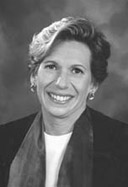 Randi
Weingarten, President, United Federation of Teachers, New York,
New York Randi
Weingarten, President, United Federation of Teachers, New York,
New York
Randi Weingarten
is President of the United Federation of Teachers, representing
more than 140,000 active and retired nonsupervisory educators in
the New York City public school system. She is also a vice-president
of the million-member American Federation of Teachers, the UFT's
national affiliate; a member of the board of directors of the New
York State United Teachers; and a vice-president of the New York
City Central Labor Council of the AFL-CIO.
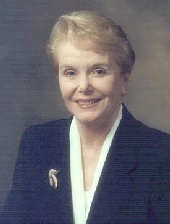 Dr. Donna Durno, Executive Director, Allegheny Intermediate Unit, Pittsburgh Pennsylvania
Dr. Donna Durno, Executive Director, Allegheny Intermediate Unit, Pittsburgh Pennsylvania
Dr. Durno is the Executive Director of the Allegheny Intermediate Unit, a service agency that provides
resources, instruction and education services for schools, families and communities through collaborative
partnerships with local school districts, institutions of higher education, government agencies and foundations.
Dr. Durno has over 30 years of educational experience and expertise. After obtaining a B.S. degree at
Seton Hill College with Magna Cum Laude status, she began her career as a home economics teacher and
vocational advisor at Norwin School District. Donna continued her schooling and obtained an M.Ed. in
guidance and counseling from Indiana University of PA. She was named Director of Federal Programs and
designed and implemented the SOAR program for academically gifted secondary students. During a leave
from the district, Dr. Durno served as a graduate assistant and completed a Ph. D. in Educational Administration
at the University of Pittsburgh. She was appointed assistant superintendent at South Western School District
in Hanover, PA and then was elected superintendent at the Mars Area School District in Mars, PA. Her
second superintendency was at the Susquehanna Township School District in Harrisburg, which she left in
1987 when she was named Commissioner for Basic Education for the Commonwealth of Pennsylvania.
Prior to joining the AIU in 1999, Donna rounded out her career in K-12 education by establishing an
independent consulting firm and finally accepting the position of senior vice president for Herald Colleges, Inc.,
a group of fifteen private, non-profit, regionally accredited junior colleges in California, Oregon and Hawaii.
In 2002, Dr. Durno received the University of Pittsburgh’s Distinguished Woman in Education Award from
Tri-State Area School Study Council.
FOUNDATION
AND BUSINESS COALITION ADVISORY BOARD (Detailed),
POWER4Kids
Reading Initiative
 Claiborne
Barksdale, Barksdale Reading Institute, Oxford, Mississippi Claiborne
Barksdale, Barksdale Reading Institute, Oxford, Mississippi
Claiborne Barksdale is CEO of the Barksdale Reading Institute in
Oxford, Mississippi, which was endowed by Jim and Sally Barksdale
to work with Mississippi public schools to improve the reading skills
of preK-3rd grade students. Previously, Barksdale served as
Associate General Counsel for BellSouth Cellular Corporation in
Atlanta, Georgia. Barksdale began his career in private law practice
by working for the Jolly, Holliman and Miller law firm in Jackson
from 1974 to 1977. He worked in Washington, D. C., for U.S.
Senator Thad Cochran as his Chief Legislative Director from 1977
to 1981. He clerked for Judge E. Grady Jolly on the Fifth
Circuit Court of Appeals in New Orleans. Barksdale holds a
bachelors degree from the University of Mississippi and a Juris
Doctorate from the University of Mississippi School of Law.
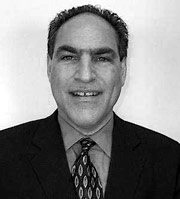 Steve
Fleischman , Executive Director, Educational Quality Institute Steve
Fleischman , Executive Director, Educational Quality Institute
Steve Fleischman directs the Education Quality Institute (EQI),
an independent, non-profit organization that has been created to
provide consumers reliable information on what works to raise student
achievement. EQI helps school boards, educators, parents,
policymakers, journalists and the public to identify and successfully
implement school reform and improvement programs with strong track
records. From 1993 through 2000 Fleischman served in a variety
of capacities at the American Federation of Teachers. Beginning
in 1997, he directed the union’s Redesigning Low-Performing
Schools initiative, which assists in raising student achievement
in under-performing schools. Mr. Fleischman grew up in Peru
and the United States, and attended schools in both countries. He
holds a Bachelor’s degree and a Masters degree in political
science.
Fred
Frelow, Assistant Director, Rockefeller Foundation, New York,
New York
Mr. Frelow is
Assistant Director for the Working Communities Program at the Rockefeller
Foundation. The goal of the Working Communities Program is to transform
poor urban neighborhoods into working communities by increasing
the amount and quality of available employment, improving the quality
of all urban schools, and addressing inequities based on race, ethnicity,
nationality and language. Previously Mr. Frelow served as Director
of Urban Initiatives for the National Commission on Teaching &
America's Future. The Commission worked with several districts,
including San Diego, Albuquerque, and San Antonio, to support their
ongoing work to build infrastructures supporting professional development.
 Dr.
David Rose Founder and Co-Executive Director, C. A. S. T. Dr.
David Rose Founder and Co-Executive Director, C. A. S. T.
Dr. David Rose is Co-Executive Director of CAST, the organization
that has pioneered the Universal Design for Learning (UDL), a new
paradigm for teaching, learning, and assessment, drawing on new
brain research and new media technologies to respond to individual
learner differences. Dr. Rose helped to found CAST in 1984 to expand
opportunities for students with disabilities through the innovative
development and application of computer technology. Dr. Rose was
a lecturer at the Harvard Graduate School of Education since 1985,
teaching the developmental neuropsychology course and supervising
doctoral dissertations in neuropsychology, reading, and language
arts. Dr. Rose was also an advisor on Universal Design for
Learning to the Clinton administration and, since 1995, has been
an advisor to the Council of Exceptional Children. He was also a
member of the Texas Task Force on Electronic Textbook Accessibility.
Dr. Rose completed his undergraduate work at Harvard University.
He received his master’s degree from Reed College and his doctorate
from the Harvard Graduate School of Education..
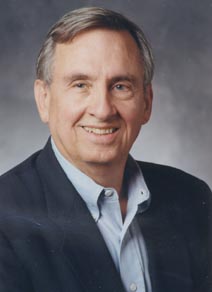 Marshall
S. Smith Marshall “Mike” S. Smith has been
the program director for education at the William and Flora
Hewlett Foundation in Menlo Park, California for two and one-half
years. Prior to that, he was Acting Deputy Secretary and Under
Secretary for Education in the Clinton Administration. During
the Carter Administration, he was Chief of Staff to the Secretary
for Education and Assistant Commissioner for Policy Studies
in the Office of Education. While not in government, he was
at different times a Professor at Harvard, the University of
Wisconsin at Madison, and Stanford. At Stanford, he was also
the Dean of the School of Education. Marshall
S. Smith Marshall “Mike” S. Smith has been
the program director for education at the William and Flora
Hewlett Foundation in Menlo Park, California for two and one-half
years. Prior to that, he was Acting Deputy Secretary and Under
Secretary for Education in the Clinton Administration. During
the Carter Administration, he was Chief of Staff to the Secretary
for Education and Assistant Commissioner for Policy Studies
in the Office of Education. While not in government, he was
at different times a Professor at Harvard, the University of
Wisconsin at Madison, and Stanford. At Stanford, he was also
the Dean of the School of Education.
PROFESSIONAL
RESOURCES (Detailed)
Legal Counsel: Morrison & Forester
Morrison
& Forester LLP is one of the world's largest law firms with
more than 1000 lawyers in 18 offices around the world. The firm
was recognized as the 1999 Pro Bono Law Firm of the Year by the
Contra Costa County Bar Association and as the only law firm on
Fortune Magazine's 1998 list of the "100 Best Companies to
Work for in America," and received the National Association
of Women in the Law's (NAWL) 1997 President's Award for the advancement
of women in the profession.
Accounting
Firm: Aronson, Fetridge And Weigle
AF&W,
founded in 1962, has 16 officers in offices in Rockville and Columbia,
Maryland and Washington, D.C. and has a dedicated Associations &
Non-Profit practice.
Public Relations Firm: Howard Rubenstein
Associates
Over
the course of his career, Mr. Rubenstein has proved an unparalleled
ability to develop and implement effective public relations and
fund-raising programs for not-for-profit organizations, boost fund-raising
efforts, strengthening organizational ties to government and business
communities, and heightening their public profile. Clients have
included hospitals, charities and educational institutions, and
current clients include the Yale Medical Center, the Miami Project
to Cure Paralysis, the Mount Sinai Medical Center, Yeshiva University
and others.
He supervised
the development and implementation of the promotional campaign for
the 50th Anniversary of the United Nations; took a lead role in
a dinner for the National Breast Cancer Coalition, attracting the
participation of Hillary Clinton; obtained ten corporate sponsors
for the 100 Black Men organization, and secured Fox Television sponsorship
in Make A Difference Day, which attracted more than one million
volunteers to New York for a day of public service.
Appropriations Council: Hogan And Hartson
Founded in 1904,
Hogan & Hartson L.L.P. is the oldest and the largest major law
firm based in Washington D.C. Today, it has more than 800 lawyers
serving clients in an international practice that cuts across virtually
all legal disciplines.
THE HAAN
FOUNDATION FOR CHILDREN team (Detailed):
C. Michael Gilliland served as legislative
director and tax counsel to Senator Howell Heflin and staff attorney
for the Senate Judiciary Subcommittee on Courts and Administrative
Practice. Mr. Gilliland practices in the legislative area and has
extensive experience in a wide range of issues including appropriations,
tax policy, telecommunications and health policy.
Jeffrey
W. Munk served as Legislative Counsel to Senator Kay Bailey
Hutchison (R-TX) before joining the firm. In this position, he developed
and executed the Senator's major legislative initiatives on a variety
of issues and counseled the Senator on legislative strategies and
floor procedures. Prior to his position with Senator Hutchison,
Jeff was Deputy General Counsel for the Bush-Quayle '92 campaign.
Christine
Warnke has served as a staff assistant to Senator Howard W.
Cannon of Nevada and as executive assistant to Senate Majority Leader
Robert C. Boyd of West Virginia. She is currently co-chair of the
Washington Circle of the National Finance Committee of the Democratic
National Committee. Dr. Warnke serves as a governmental affairs
advisor to Hogan & Hartson.
John
Porter served for 21 years as the Congressman from the 10th
District of Illinois. He served on the Appropriations Committee
as Chairman of the Subcommittee on Labor, Health and Human Services;
as Vice-Chairman of the Subcommittee on Foreign Operations; and
as Vice-Chairman of the Subcommittee on Military Construction. Mr.
Porter has been honored by many organizations for his work to balance
the federal budget, protect the environment, promote human rights
and secure unprecedented funding increases for biomedical research
through the National Institutes of Health.
|
















